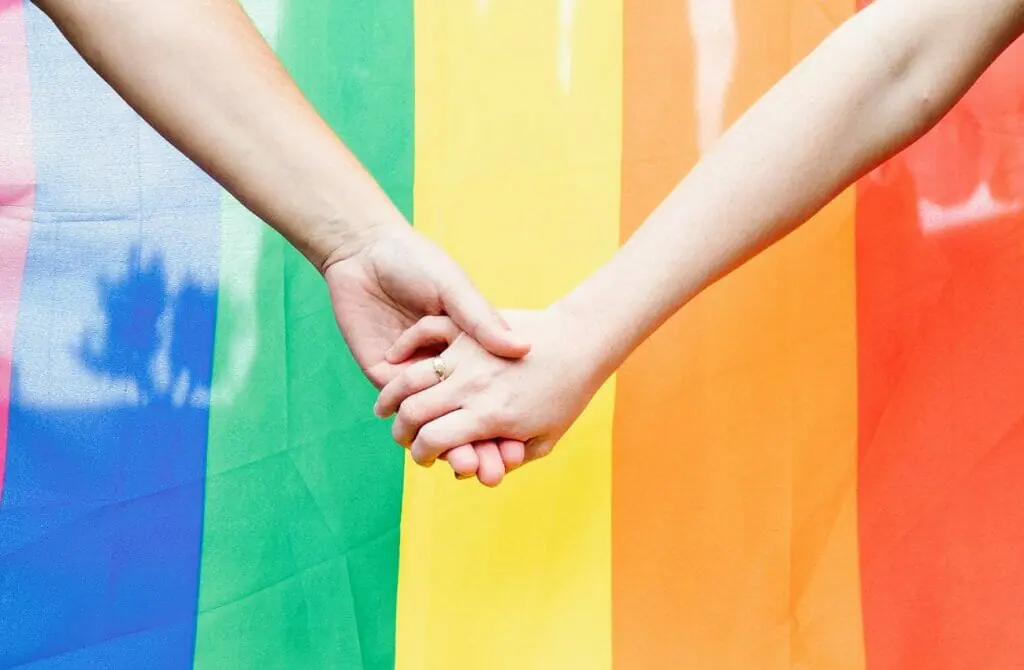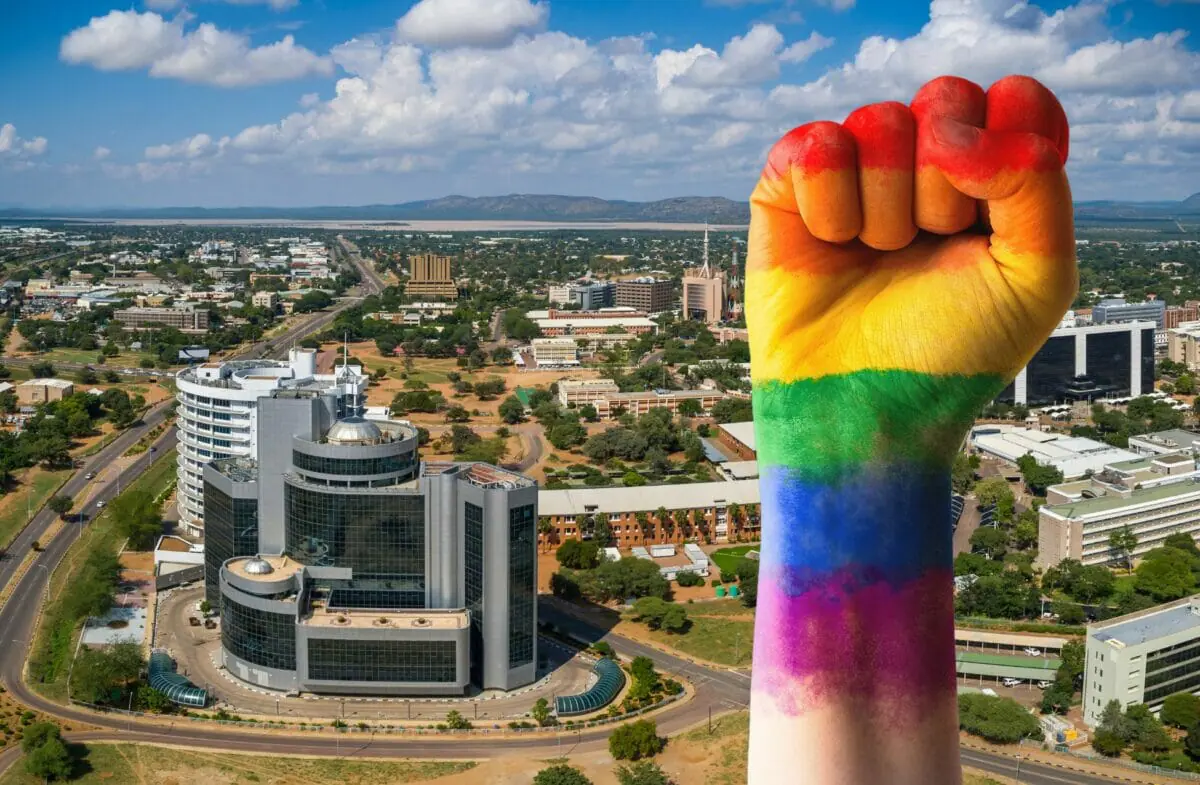LGBT rights in Botswana have made significant progress in recognizing and protecting the rights of the LGBTQ+ community. Same-sex sexual acts were legalized in the country on June 11, 2019, after a unanimous ruling by the High Court of Botswana, which was also upheld by the Botswana Court of Appeal on November 29, 2021.
This remarkable progress has placed Botswana at the forefront of LGBTQ+ rights in southern Africa. However, it is essential to understand how these rights impact both local residents and tourists and the precautions they should take.
While Botswana has made strides in protecting LGBTQ+ rights, there might still be societal discrimination or unease towards LGBTQ+ individuals. It is prudent for tourists to remain vigilant and sensitive to the local culture. For a smooth trip, one should research the current situation and seek updated advice from reliable sources before traveling. This will help in avoiding any unpleasant experiences and ensuring that one’s visit coincides with a positive experience of the country.
Steps that could be taken to protect oneself include staying in LGBTQ+-friendly accommodations, avoiding public displays of affection, and being aware of one’s surroundings. It is also crucial to remember that laws and societal attitudes can change, so one must remain adaptable and cautious. By taking these steps, both the local LGBTQ+ individuals and tourists can enjoy the beauty and warmth of Botswana while also staying mindful of the evolving landscape of LGBTQ+ rights in the country.
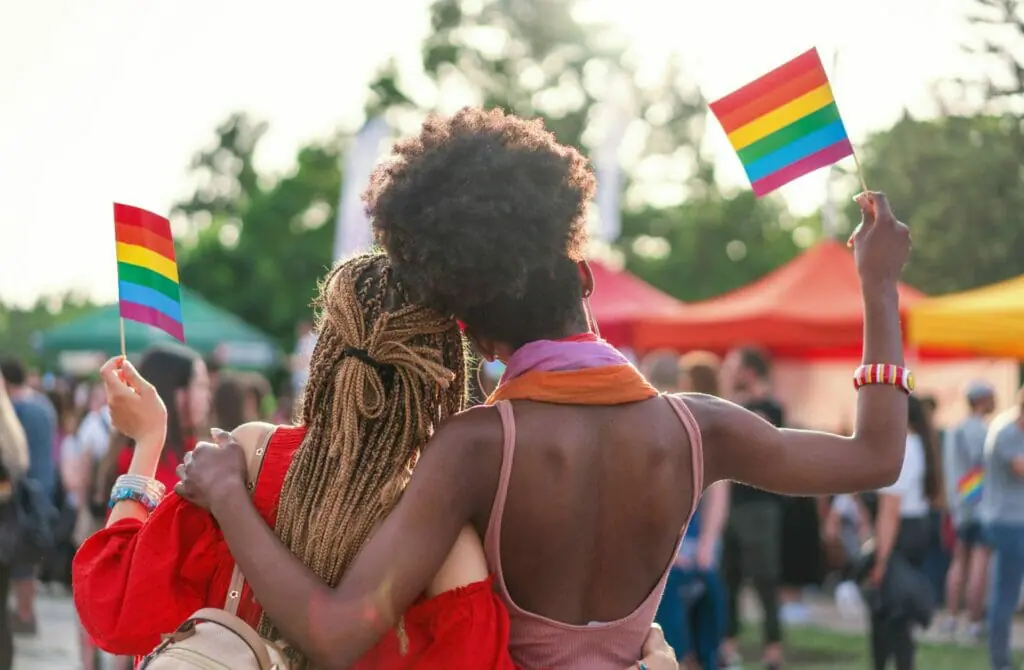
History Of LGBT Rights In Botswana
In Botswana, the history of LGBT rights dates back to the 18th century when the Khoikhoi people acknowledged terms like koetsire, which refers to a man who is sexually receptive to another man, and soregus, which refers to mutual masturbation among friends. However, legal recognition of LGBT rights emerged more recently when the High Court in Gaborone decriminalized same-sex relationships in June 2019. This landmark decision made Botswana a leader in LGBTQ rights within the southern African region.
Understanding the extent to which LGBT rights affect both local people and tourists in Botswana is crucial. While the 2019 ruling benefits locals, tourists should still exercise caution and vigilance due to potential differences between social acceptance and legal rights. Always remain aware of your surroundings and avoid drawing unwanted attention to your sexual orientation or gender identity while in public spaces.
Steps to protect yourself when visiting Botswana or any other country with evolving LGBT rights include staying informed on current legislation, being cautious about disclosing your sexual orientation or gender identity, researching safe spaces such as LGBTQ-friendly businesses, and connecting with local support groups when possible.
Despite significant progress in Botswana, it is essential to acknowledge that situations can change rapidly, and information may become outdated. Thus, it’s crucial always to seek up-to-date advice before traveling and rely on your judgment when entering new environments.
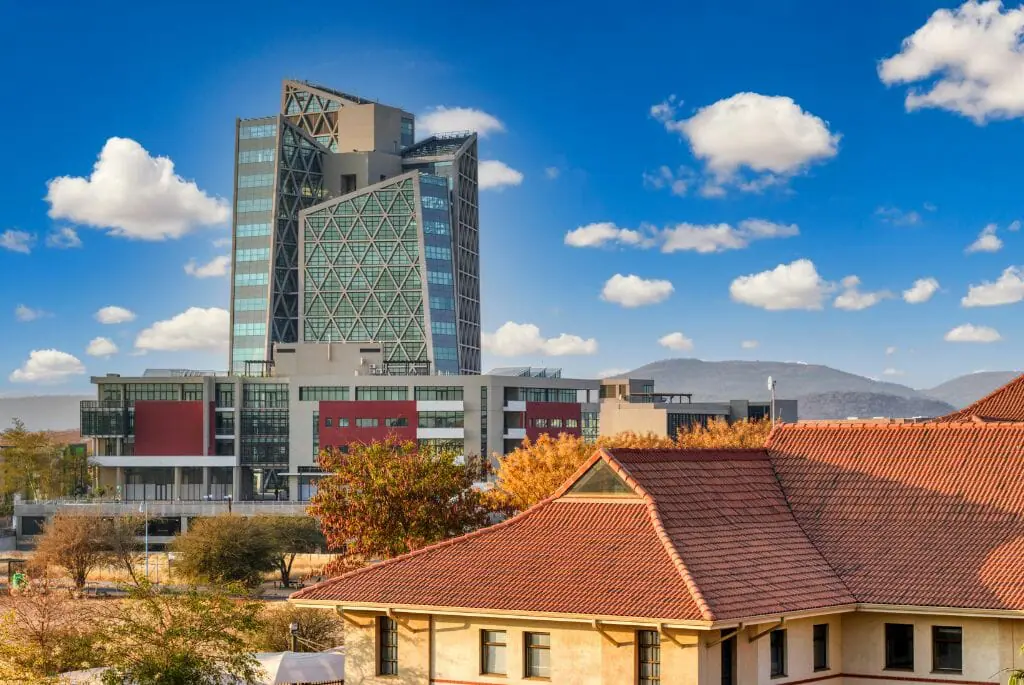

The LGBT Current Situation In Botswana
In Botswana, both female and male same-sex sexual acts have been legal since 11 June 2019, following a unanimous ruling by the High Court of Botswana. This ruling was upheld by the Botswana Court of Appeal on 29 November 2021, even after an appeal by the government.
The overall LGBT rights situation in Botswana has improved significantly in recent years, with ongoing efforts to create a more inclusive environment for local citizens and tourists alike. It is important to note that, like with any country, there may still be individuals or communities with negative attitudes towards the LGBTQ+ community.
For tourists: As an LGBTQ+ tourist visiting Botswana, it is advisable to exercise caution, respect local customs, and stay informed about the current situation. Situations can change rapidly, and information may become outdated, so seeking up-to-date advice before traveling is essential. Additionally, remaining vigilant is important, as there are always bad actors in every country.
For locals: The decriminalization of same-sex relationships has provided legal protection to LGBTQ+ individuals living in Botswana. However, it is crucial for locals to be aware of their rights and stay informed about any changes in the legal landscape. Continued efforts in promoting acceptance and inclusivity will play a significant role in improving the lives of LGBTQ+ individuals in the country.
To further protect oneself, it is advisable to:
- Stay up-to-date with the latest news on LGBTQ+ rights in Botswana.
- Connect with local LGBTQ+ support networks and organizations.
- Have the contact information for legal assistance and emergency services handy.
- Use discretion when traveling and discussing LGBTQ+ topics with unfamiliar individuals.
Always err on the side of caution, and remember that the situation can change and may vary depending on the area or community you are in.
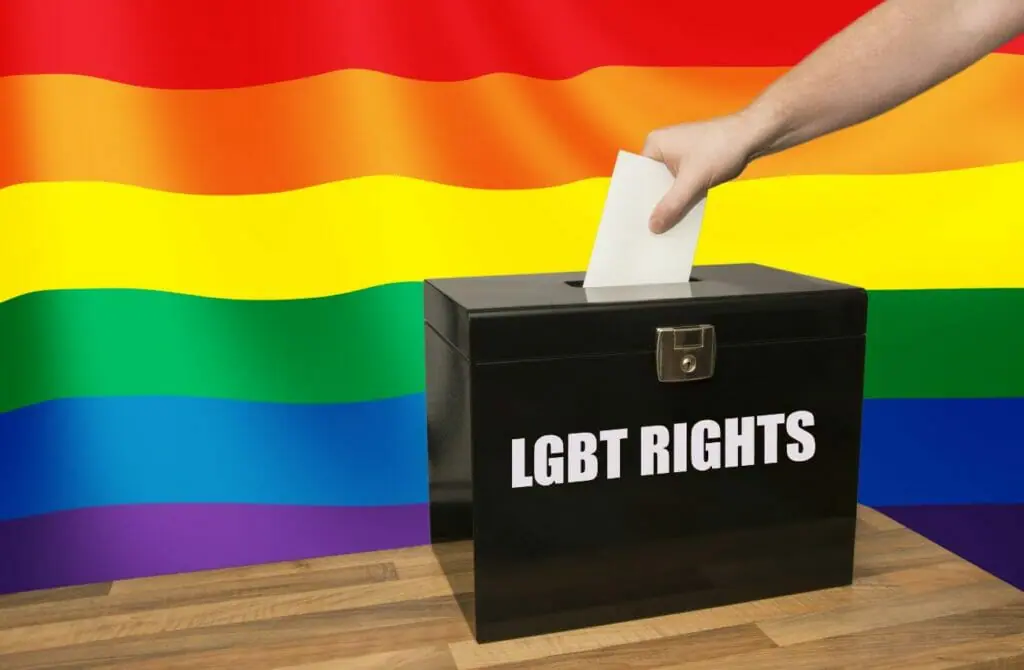

The Future For The Queer Community In Botswana
In recent years, Botswana has made significant strides in recognizing and protecting LGBT rights. The decriminalization of same-sex relationships in 2019 and the subsequent upholding of the ruling in 2021 have laid a positive groundwork for the future of the LGBT community in the country. Despite these advancements, it is important to remember that situations can change fast, and information may become outdated. As such, it is crucial to seek current advice before traveling to ensure your personal safety.
While the legal recognition of same-sex relationships in Botswana has had a positive impact on local LGBT individuals, the experiences of tourists may differ. Although the risk of arrest and harassment has reduced significantly for both locals and visitors, remaining vigilant is important. In any country, there are potential bad actors who may seek to exploit or harm others, so exercising caution and being aware of your surroundings is key.
In order to ensure personal safety, travelers should familiarize themselves with local customs, cultural norms, and attitudes towards the LGBT community. This can help in avoiding potentially risky situations. Additionally, tourists should know the location and contact information of their embassy, as they can serve as a helpful resource in times of need.
To further protect and promote LGBT rights in Botswana, several steps could be taken by both the local and international community. Advocacy work, awareness campaigns, and support for local LGBT organizations can play a vital role in advancing acceptance and equal rights. It is essential for those interested in supporting these efforts to be well-informed about local initiatives and collaborate with local organizations where possible.
In conclusion, while Botswana has made laudable progress in advancing the rights of its LGBT community, the future will require continued awareness, advocacy, and support. Travelers should remain cautious, informed, and vigilant to enjoy a safe and rewarding experience.
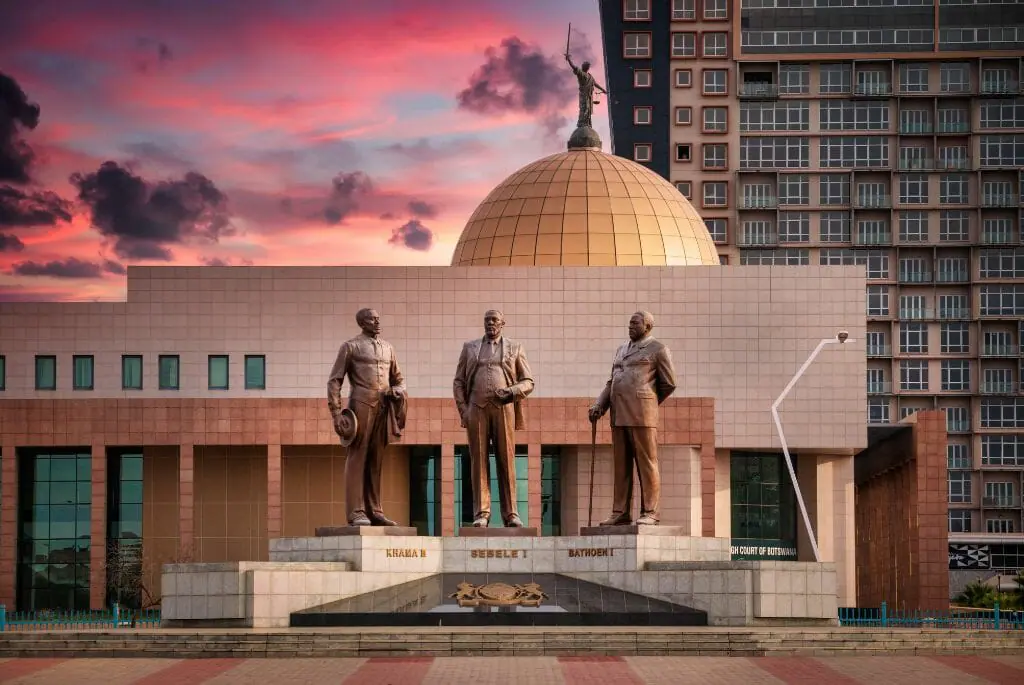
Protect Yourself While Travelling In Gay Botswana
As a local or a tourist in Botswana, it is important to be aware that LGBT rights can have a different impact on you, depending on your status. While same-sex sexual acts became legal on 11 June 2019, there may still be disparities in the experiences of locals versus tourists.
For local LGBT individuals, they may face challenges such as employment discrimination based on sexual orientation or finding housing. However, tourists might not experience the same issues, as their interactions in the country are more temporary and limited. Despite the progress in legalizing same-sex sexual acts, cultural attitudes can still vary, and it is essential to remain vigilant and cautious in any interactions, regardless of your status.
When it comes to protecting yourself in Botswana, some steps to consider are:
- Stay informed about current laws and regulations regarding LGBT rights in Botswana. Laws may change, and it is important to have the most up-to-date and accurate information before making decisions.
- Be cautious when sharing personal information, especially in public spaces or on social media. Bad actors can use this information for malicious purposes.
- In case of any issues, always have contact information for local organizations or support groups that advocate for LGBT rights. They can provide advice, assistance, and resources in times of need.
It is important to always err on the side of caution and remember that situations can change quickly. Information can become out-of-date, and local attitudes may differ from what you expect. Before traveling, make sure to seek current advice and consult reliable sources for updated and accurate information on LGBT rights in Botswana. Staying informed, cautious, and vigilant will help you protect yourself and better navigate the local context with respect to LGBT rights.
